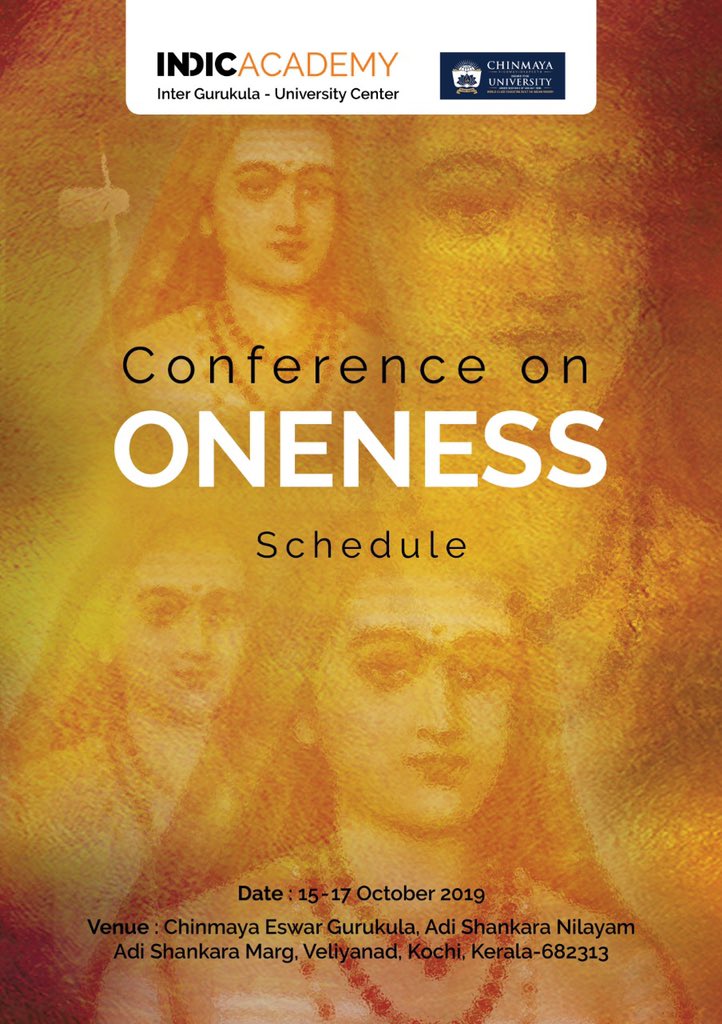
New Book Release ‘What Does it Mean to be an Indian?’ By S.N.Balagangadhara & Sarika Rao - bit.ly/3BFykqK
Purchase Link: amzn.to/3oUCckh
Why ask this question today?
#Thread Snippets of the review by Dr Pingali Gopal @gpingali , published by @Pragyata_
Purchase Link: amzn.to/3oUCckh
Why ask this question today?
#Thread Snippets of the review by Dr Pingali Gopal @gpingali , published by @Pragyata_

Secular historians, standing against the ‘religiosity’ of the masses, taught us that our stories were merely disguised historiographies, poetic exaggerations, or lies by our ancestors. In the western intellectual trad, the dominant idea is that myths are false and facts are true
However, growing up as Indians, we learn that we should treat our stories and epics (Itihasas) as different from the claims of our history, geography, and science lessons. As Dr Balu asks, ‘What do we want, a history or a past?’
Converting Itihasa into history would destroy our past, as the remembered past of a thriving and rich culture. The huge no of stories, unique to Indian culture, play a very imp role in knowledge transmission. As action heuristics (rules of thumb), they are neither true nor false
The British were the heirs to the traditions of the Church and later Enlightenment philosophers who scrutinized Roman and Greek epics narratives for logic, coherence, and truth value.
They failed to understand that these were not true or false doctrines and were not descriptions of the world. These ‘mythologies’ became simply superstitious expressions of primitive fears and hence were either lies or poetic exaggerations.
In an important chapter, Balu discusses his important thesis of culture and cultural differences. Any culture builds two rich, complex, and interlinked storehouses of linguistic and actionable items to flourish in the two basic surrounding environments- the natural and the social
These storehouses are the resources for socialization. In the broadest terms, ‘culture’ is the available resources for socialization. Cultural differences reside in how the culture utilizes the resources.
Cultures originate, reproduce, and transmit across generations by these configurations of learning and the differences between such configurations (which dominant and which subordinate) decide the cultural differences.
Indian traditions have made experience and its interrogation central to their enquiry and create knowledge. In Indian culture, knowledge is mainly experiential in nature (practical knowledge).
The goal of the knowledge is to then shape and transform the human experience in turn and give them structure. We slice the raw materials of experiences (events, persons, objects, thoughts, feelings, and perceptions) into manageable fragments and give them structure.
Anubhava, the Sanskrit near equivalent of experience, indicates an appropriate way of being-in-the-world with regards to things, events, actions, & people that we encounter. The emphasis of Anubhava is on apt transitions from one state to another which also involve learning.
A significant difference between western experiences and Indian experiences (or Anubhava) is how we look at truth and falsehood. For the Western culture, truth and falsehood divide the world of statements into two exhaustive partitions.
Indians, in a different route, privilege knowledge above truth. While knowledge is always true, not everything that is true (like a telephone directory) is also knowledge.
Thus, in Indian culture, even truth (a true statement or a ‘fact’) can surprisingly hinder learning and prevent the emergence of knowledge. It is knowledge (always true) that liberates but not truth.
One way of preventing access is by the adoption of an alien way of looking at Indian texts like ‘verifiable’ historical facts. Western traditions, even today, end up denying Indian experiences causing great intellectual violence.
The western explanations of Indian experiences that we routinely reproduce (fertility cults, symbolisms, sexual repressions,...) hint that there is no such thing as an ‘Indian experience’ unless they are Indian ‘hallucinations’, says Balu.
Taking the example of anger,Balu shows how Indian culture access experiences differently than the west. We share with our fellow humans a biological ‘substratum’-the sub-structure of our personality. Resting upon it is a unique super-structure expressing our individual psychology
Introspection, depth psychology, and psychoanalysis- typical products of the west analyse the different layers in the superstructure. The higher we go, the more unique we become and, in fact, becomes the problem.
In contrast, Indian culture would teach that the super-structure consists of many idiosyncrasies (like anger) and are almost inconsequential. Indian culture focuses on the foundation or the sub-structure leading to self-knowledge.
In the West, one deals with the internal mental life as an expression of the unique ‘self’ that each human being has; in India, there is neither an inner self unique to each one of us nor is there a privileged knower that cognizes the meaning of these unique expressions.
• • •
Missing some Tweet in this thread? You can try to
force a refresh






